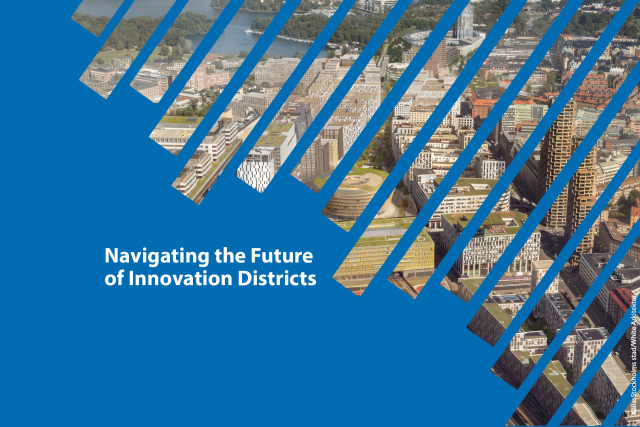Femtech Innovation Hackathon
ATMP World Tour 2024
"I Flemingsberg botar vi sjukdomar som tidigare varit obotliga"
JOHNNY HÖGBERG: ATMP (Advanced Therapy Medicinal Products) har visat sig vara en revolution inom sjukvården genom sin potential att erbjuda botemedel för sjukdomar som tidigare betraktats som obotliga. Flemingsberg har sedan 1996 varit en föregångare inom ATMP-området, tack vare Karolinska Universitetssjukhuset i Huddinge, ett av Europas största sjukhus, och Karolinska Institutet. Deras samarbete skapar ett medicinskt centrum med högt internationellt rykte och fortsätter att driva innovation inom avancerade terapier.
Navigating the Future of Innovation Districts
A summit that brings together brilliant minds to discuss how innovation districts contribute to growth and attraction. Experiences and ideas will be shared to reach a new level for innovation districts.
Johan Christenson är stiftelsens nya styrelseordförande
Sedan 2024-03-12 är Johan Christenson ny styrelseordförande för Stockholm Science City Foundation, vilket vi är väldigt glada över. Med en gedigen erfarenhet och expertis inom life science-sektorn kommer Johan att spela en avgörande roll i att driva vårt arbete framåt.
“Our mission – to discover, develop and deliver safe, efficacious and affordable vaccines to most vulnerable populations”
The International Vaccine Institute (IVI) launched its regional office in Stockholm in 2022. In this relatively brief period, IVI has significantly expanded its footprint within the Swedish and European life science sectors. IVI's Regional office director, Dr. Anh Wartel, tells us about the journey IVI has taken so far to succeed with its mission of promoting vaccines for a safer future and how it engages with the Swedish organization's life science partners to make it possible.

